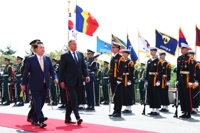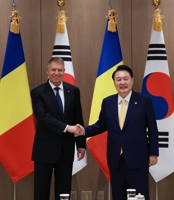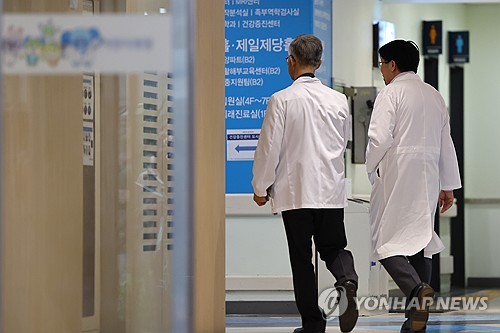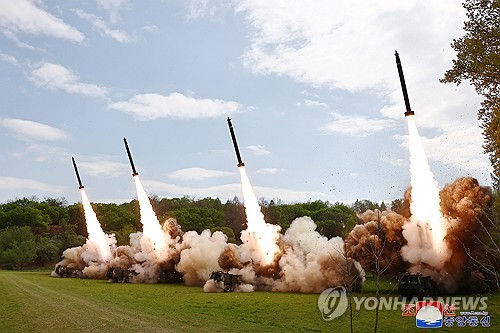N. Korea may give up nukes, but will test U.S. commitment to diplomacy: U.S. experts
By Byun Duk-kun
WASHINGTON, May 4 (Yonhap) -- North Korea may still be willing to give up its nuclear weapons for the right price, but will likely wait to see how serious and committed the new U.S. administration is to diplomacy, U.S. experts said Tuesday.
"I do believe North Korea is committed to complete, verifiable denuclearization, assuming they get the security assurances they want and certainly they need because they're concerned about regime change, and they realize nuclear weapons, indeed, are a deterrent," Joseph DeTrani said in a webinar hosted by the Washington Times Foundation.
DeTrani served more than two decades at the Central Intelligence Agency before working as a special U.S. envoy to the six-nation denuclearization negotiations with North Korea.
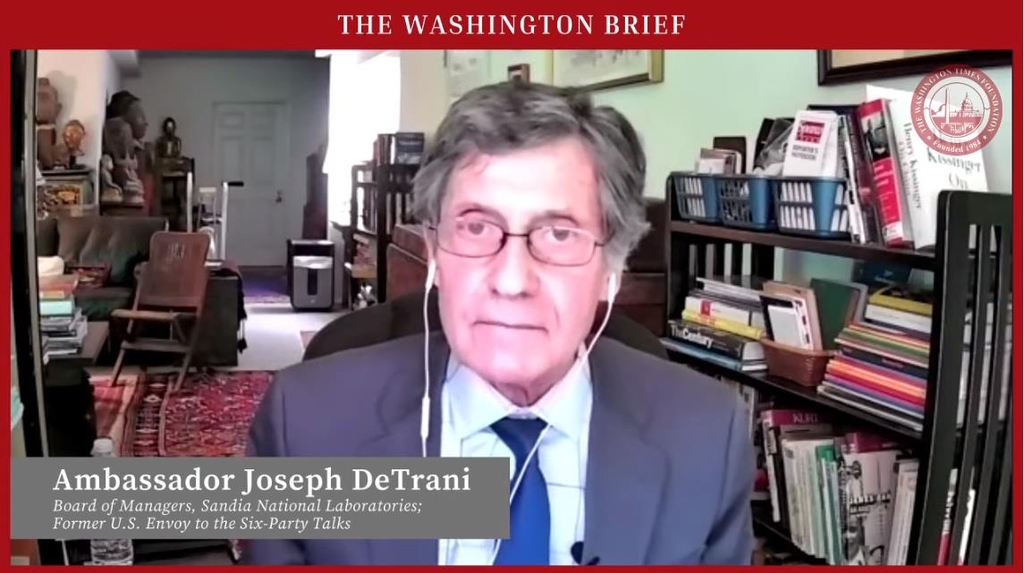
The captured image shows Joseph DeTrani, former special U.S. envoy to the six-party talks with North Korea, speaking in a webinar hosted by the Washington Times Foundation in Washington on May 4, 2021. (Yonhap)
The former U.S. negotiator said his many encounters with his North Korean counterparts had left him with many impressions, one of which is "that North Korea wants a normal relationship with the United States."
"This is something that North Korea wants. However, they want it on their terms."
After a near 100-day review, the Joe Biden administration said on Friday that its North Korea policy will seek "practical" ways to make real progress toward complete denuclearization of the Korean Peninsula through diplomacy.
North Korea responded with dismay, threatening that the U.S. will face a "very grave situation" with a worsening crisis beyond control.
Christopher Hill, a former ambassador to South Korea and also a former U.S. envoy to the six-party talks, said the North's rhetoric should not be received on face value.
"It's not clear that North Korea is ready, but nor do I believe that we should accept their statement that, to the effect, they are not at all happy with this policy review," said Hill. "We should not accept that statement as the final statement from the North Koreans."
"It's going to be up to the North and the North Koreans to figure out that there is something in this for them and they ought to come to the table," he added.
DeTrani agreed the North needs to hear what the new Biden administration has to offer, but also clearly lay out to the Biden administration what they want in return.
"They need to hear what's required of them when we talk about comprehensive, verifiable denuclearization, and they need to be hearing from us. But also, we need to hear from them when they talk about security assurances, economic development assistance," he said.
North Korea has stayed away from denuclearization talks since leader Kim Jong-un's second bilateral summit with former U.S. President Donald Trump ended without a deal in Hanoi in February 2019.
Kim, however, had agreed to denuclearize his country in exchange for security guarantees from the U.S. in his first bilateral summit with Trump, held in Singapore in June 2018.
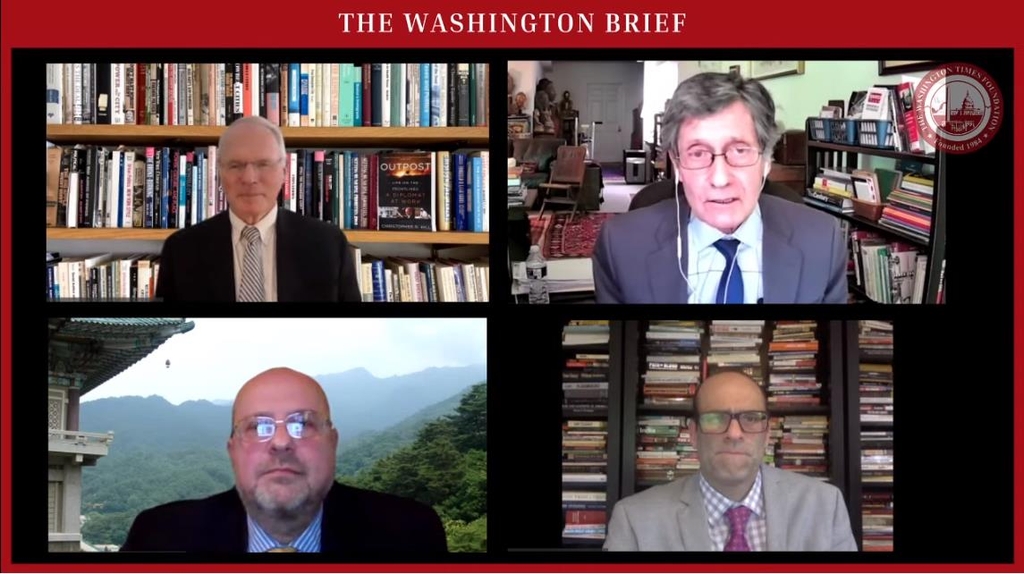
The captured image shows U.S. experts taking part in a webinar hosted by the Washington Times Foundation on May 4, 2021. They are (from top L, clockwise) Christopher Hill, former U.S. ambassador to South Korea, Joseph DeTrani, former special U.S. envoy to the six-nation denuclearization talks with North Korea, Guy Taylor, Washington Times journalist, and Alexandre Mansourov, professor of security studies at Georgetown University.
DeTrani noted the Singapore agreement could still be a starting point for the North's denuclearization process under the new Biden administration.
"I thought the Singapore joint statement was a very, very effective -- very succinct but very effective -- document that spoke of a transformation of our relationship, which is what North Korea wants, a process to normalize relations with the U.S.," he said.
"I think he (Kim) is ready to do that, assuming we stay the course and we make it clear we're not going to cave in on the nuclear issue, we are not going to accept them as a nuclear weapons state, but we are prepared to move further to the Singapore joint statement with normal relationship with North Korea, with all the other benefits that will accrue," added DeTrani.
Alexandre Mansourov, professor of security studies at Georgetown University, argued Pyongyang will likely stick to its traditional way of dealing with a new U.S. administration -- first by provoking to see how serious the new U.S. government is.
"North Koreans are likely to test how seriously the United States is really committed to diplomacy because they've seen this game many times before. They played this game with us many times before," he said in the virtual seminar.
"And so in my opinion they may actually launch ... maybe a satellite, will conduct a submarine based ICBM test sometime around May 21 Biden-Moon Summit, just to see whether the Biden administration will abandon diplomacy," he added, referring to Biden's upcoming summit in Washington with his South Korean counterpart, Moon Jae-in.
bdk@yna.co.kr
(END)
-
 Overdue debut of Korean abstract art pioneer Yoo Young-kuk at Venice Biennale
Overdue debut of Korean abstract art pioneer Yoo Young-kuk at Venice Biennale -
 Relax, immerse yourself in scents at Venice Biennale's Korean Pavilion
Relax, immerse yourself in scents at Venice Biennale's Korean Pavilion -
 S. Korea marks 30th anniv. of Korean Pavilion at Venice Biennale with contemporary art
S. Korea marks 30th anniv. of Korean Pavilion at Venice Biennale with contemporary art -
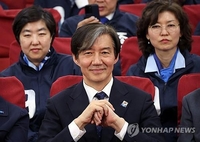 Ex-Justice Minister Cho slams Yoon's statement on crushing election defeat
Ex-Justice Minister Cho slams Yoon's statement on crushing election defeat -
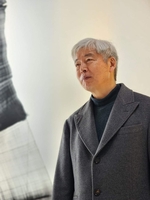 Artist Lee Bae captures ethereal Korean aesthetics at Venice Biennale
Artist Lee Bae captures ethereal Korean aesthetics at Venice Biennale
-
 Overdue debut of Korean abstract art pioneer Yoo Young-kuk at Venice Biennale
Overdue debut of Korean abstract art pioneer Yoo Young-kuk at Venice Biennale -
 Relax, immerse yourself in scents at Venice Biennale's Korean Pavilion
Relax, immerse yourself in scents at Venice Biennale's Korean Pavilion -
 Artist Lee Bae captures ethereal Korean aesthetics at Venice Biennale
Artist Lee Bae captures ethereal Korean aesthetics at Venice Biennale -
 S. Korea marks 30th anniv. of Korean Pavilion at Venice Biennale with contemporary art
S. Korea marks 30th anniv. of Korean Pavilion at Venice Biennale with contemporary art -
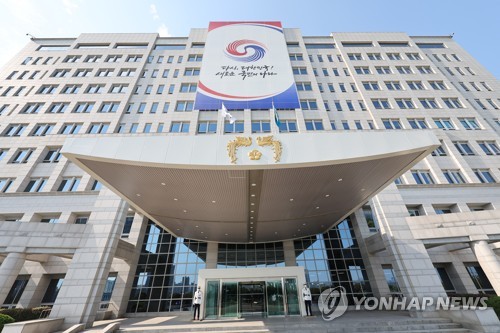 (LEAD) Presidential office denies Moon aides under consideration for PM, chief of staff
(LEAD) Presidential office denies Moon aides under consideration for PM, chief of staff
-
 Hybe says spinoff attempt by subsidiary label revealed clearly
Hybe says spinoff attempt by subsidiary label revealed clearly -
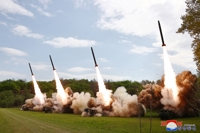 (LEAD) N. Korea says Kim guided simulated nuclear counterattack drill
(LEAD) N. Korea says Kim guided simulated nuclear counterattack drill -
 Hybe launches audit into NewJeans' label ADOR over alleged independence move
Hybe launches audit into NewJeans' label ADOR over alleged independence move -
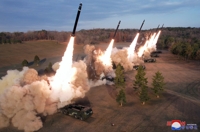 N. Korea says Kim guided simulated nuclear counterattack drills for 1st time
N. Korea says Kim guided simulated nuclear counterattack drills for 1st time -
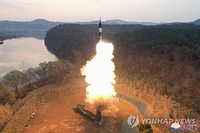 (LEAD) N. Korea fires several short-range ballistic missiles toward East Sea: JCS
(LEAD) N. Korea fires several short-range ballistic missiles toward East Sea: JCS















